Safe Haven for Pets… For Animals
One of my dreams for quite some time has been to purchase land (in the US) and set up a temporary (and forever for some) haven for pets/animals. I would love to hire some computer wiz-kids to set up a national registry to connect all the shelters, rescues, etc. around the country so people looking for them, a particular pet can find them. Then set-up a network to transport the pets to the people who want them, their forever homes. And for those who need longer, they could come to us, to the center, until their forever home comes available or their forever parents find them.
I believe there is a forever home for every pet… for every animal and they we are all God’s creatures, so need to work together.
Marion at JOMP~
So this really touches my heart!!


Ayesha Chundrigar with an ACF shelter dog. ALL PHOTOS COURTESY: AYESHA CHUNDRIGAR FOUNDATION
Growing up in a house full of pets gave Ayesha Chundrigar an informal, intuitive education in empathy and respect for animals at a young age. She was only nine years old when she began volunteering at an orphanage during her summer holidays, and by the age of 15 she was teaching at various non-profit schools in katchi abadis around Islamabad, where she was living at the time. She was also helping at refugee camps in the city in the aftermath of the 2005 earthquake in the northern areas of Pakistan, but her true altruism shone through when she launched her NGO, the Ayesha Chundrigar Foundation (ACF), in Karachi, which among other things, aims at giving a voice to the voiceless – animals.
Apart from the Pakistan Animal Welfare Society (PAWS), ACF is now the second non-profit organisation which aims to rescue abandoned, abused or injured stray animals. Chundrigar who took up the challenge of managing and maintaining Edhi Foundation’s animal shelter in Karachi, says that the place was in an abysmal state when she first visited it. “There were animal carcasses and dead puppies and donkeys lying in pools of blood. I still have nightmares about it,” she says. “I found the number of a vet listed on a board close to the shelter and gave him a call saying he had to help me and that was it.”

All animals coexist in perfect harmony at the shelter.
Chundrigar started with four dogs and some savings. The shelter now houses over 100 animals, including donkeys, dogs, cats, eagles and pigeons. Although she has used up all her savings, she finds her job truly worthwhile. ACF has rescued over 600 animals in Karachi and has long-term plans of opening its own animal sanctuary instead of only managing Edhi’s animal shelter. “We have been given a piece of land for 10 years and we are ready to begin construction,” informs Chundrigar, adding that the new shelter will be able to house over 300 animals, with designated sections for donkeys, cats, dogs and other rescued animals.
Although the current shelter lacks electricity and water supplies, the Edhi Foundation is making do. They are preparing to install a water tank and solar panels. The animals are fed fresh food every morning and there is a general atmosphere of hope and recovery. “Our cats and puppies eat together and play together,” says Chundrigar. “I can stay and look at these sights forever.”
But this is not always the case. “Dogs have come in a paralysed and crippled [state] or with horrific wounds, but I’m lucky enough to see miracles every day. These animals [eventually] become strong, loving creatures that shower you with unconditional love.”

Dr Farid nurses the fore limbs of a donkey at one of the camps.
At the present, ACF’s core team of seven members, including Chundrigar, volunteer. The only ones on a payroll are their three veterinarians: Dr Khalid Memon, ACF’s senior vet who is a professor at the Baqai Veterinary College in Karachi, Ghulam Farid, a junior vet who is a final year veterinary student at Baqai, and Salman Wali, a manager and trainee vet at Baqai. Together they embrace the animals that society discards.
With the help of Edhi Foundation’s service, ACF conducts most of its rescue missions around the city in an ambulance. Public transport, however, is also used by vets when the ambulance is unavailable. Once the injured animal has been rescued, its wounds are treated and then begins the long rehabilitation process.
Ayesha Chundrigar with her team at a recent donkey camp.
Although most rescue operations end on a happy note, some have tragic endings. When Chundrigar first saw the image of a female dog, with a disfigured face lying on the ground almost lifeless, on Facebook, she didn’t just comment on the extreme sorrow she felt, instead she took a hands-on approach. “Five of her puppies were snuggled near her tummy [in the picture] and I sent my team to rescue them [from Chundrigar Road],” she says. “The wounds … were definitely a few days old, her eye sockets were empty and she was severely dehydrated and malnourished, but by some miracle she stayed alive to feed her babies. We bandaged her up and started her treatment,” she says, adding that the puppies were fed formula milk although their mother was still determined to feed them herself. Although after a day the dog had gained enough strength to stand up on its own and take a few steps, she eventually succumbed to her injuries. “Unfortunately her wounds were too deep and after I petted her for hours and gently explained to her that I’d take care of her puppies, she let go.”
But dampened spirits don’t last at ACF for long as the team finds solace in the animals they have successfully rescued and rehabilitated. Bravo, a dog so thin and malnourished that he could barely lift his head, was nursed to health by Farid who was determined to see him stand on his feet. After several blood tests, X-rays and consistent monitoring, Bravo has not only regained its health but is currently ACF’s guard dog. “[Bravo is the] biggest, strongest and healthiest dogs at the shelter,” Chundrigar says proudly. “He gives me the warmest, most welcoming hugs every time I see him.”
ACF also holds regular donkey camps. “The way donkeys are treated in this country kills me and I wanted to somehow change that,” says Chundrigar. “The donkey camps started with literally just me and my senior vet standing on the roadside in [areas where donkey-carts are readily used], asking people to let us medically treat their donkeys for free.” While initially Chundrigar’s team was met with suspicion, with some cart owners believing that they were here to harm their sole source of income, they soon warmed up to them once they were convinced that the team was only there to help. Over 50 donkeys are fed and treated free of charge twice a month, in various parts of Karachi, including Sohrab Goth, Korangi and Nipa Chowrangi. ACF also conducted a ‘hydration drive’ last year when biscuits and chilled water bottles were distributed to people around the city.

Dr Farid gives one of the dogs eye treatment at the Edhi Foundation animal shelter along the highway.
Like PAWS, ACF relies heavily on social media to raise awareness about animal cruelty in Pakistan. “People see updates on our animal rescue activities and donkey camps and want to help out,” says Chundrigar. And it was through Facebook that Chundrigar teamed up with Zain Mustafa, an architect and die-hard animal lover, who is now a part of ACF’s core team. Many have even shown interest in adopting ACF’s rescued animals. “The encouraging part is that people are positive towards something being done for animals in this country,” she says. And while on the topic of showing compassion towards animals in the country, Mustafa adds, “It can be done by introducing the value of animals into our mainstream education system and curriculum at a very early age… By getting children to physically interact with a variety of animals and bridge the widening gap between ‘us’ and ‘them’.”
ACF’s second project is also currently in the pipeline. It will aim to provide a therapeutic centre for healing that will focus on conducting individual counseling, art therapy and support groups. “We will be working with sexually and physically abused women, children and transgenders. [The project] will also include education for donkey-cart owners that, I believe, will gradually help change their behaviour towards the animals,” says Chundrigar, who is training to become a certified counselor.
But with limited funding, the ACF can only do so much. Although people have been donating cash and tangibles such as food via the information provided to them on social media, the funds are trickling in slowly. “What we get is enough to manage our current animals’ food and medical treatment,” says Chundrigar, adding that the monthly cost for food and supplies at the shelter is well over Rs100,000 and keeps increasing as the organisation rescues more animals each day. “We still need help starting our new shelter, acquiring ambulances and starting an inner-city emergency unit.”
Even though Chundrigar is positive about the path ahead for ACF, she admits that for Pakistan, animal welfare and charity is something quite “out of the ordinary,” with people often mocking her work. “They said I was crazy to think I could do something for animals because the situation is too far gone. Also, it’s an uphill battle explaining to people why animals deserve love and a chance at having a better life.”
Donation details:
Ayesha Chundrigar Foundation
Iban number: Pk33BAHL1036008100660001
Account number: 10360081006600012
Bank Al Habib, Kh-e-Hafiz Branch, Karachi.
For food donations and volunteering queries, please write to:
ayeshachundrigarfoundation@gmail.com
Sonya Rehman is a writer/journalist based in Lahore. She tweets @sonyarehman
Published in The Express Tribune, Sunday Magazine, June 15th, 2014.
Please Donate if you Can!!
June 27, 2014 Posted by justonemorepet | Adopt Just One More Pet, Animal Abandonement, Animal or Pet Related Stories, Animal Rescues, animals, Dogs, Dogs, Fostering and Rescue, If Animlas Could Talk..., Just One More Pet, Man's Best Friend, NO KILL NATION, Outreach for Pets, Pet Friendship and Love, Pets, Political Change, Stop Animal Cruelty, Stop Euthenization, We Are All God's Creatures | 3 Comments
Under Obama Over 1,200 Military Dogs Put Down by Regime

Moonbattery: Eating dogs was bad enough. Killing over 1,200 faithful military dogs who were protecting American troops in Afghanistan is worse:
The heroic service dogs were euthanized because they were deemed too “dangerous” for civilian adoption or jobs with law enforcement agencies, as well as for medical reasons according to U.S. Air Force reports given to Congress.
The dogs were used as guards and to sniff out terrorist bombs.
It’s not as if no homes could be found:
Currently more than 300 people are waiting to adopt a military dog, with an average waiting time of 18 months.
Betraying those who loyally served in Afghanistan and Iraq has been characteristic of the current administration.
Is there anything these people do right?

No wonder Bo is trying to get away from him!!
On a tip from Dragon’s Lair.
*All but ‘1’ of the dogs rescued from Mike Vick’s fighting ring were rehabbed and re-homed without any problems!! This is horrible and ridiculous! Everyone of these military K-9’s who served for us deserved better… a home and family to retire to after their service. And if after the ongoing VA scandal, anyone out there still believes that ‘they’ care any more about our 2-legged veterans than the 4-legged ones… Houston, We have a problem!!
June 23, 2014 Posted by justonemorepet | animal abuse, Animal or Pet Related Stories, Dogs, Dogs, Fostering and Rescue, If Animlas Could Talk..., Just One More Pet, Man's Best Friend, Pet Adoption, Pet and Animal Training, Pets, Political Change, Service and Military Animals, Stop Animal Cruelty, Stop Euthenization, Working and Military Dogs and Related | 7 Comments
Kids with autism connect, cuddle with future service dogs: ‘I love them’

LionPaws via Facebook
Today – Pets By LauraT Coffey – Originally Posted on June 10, 2014 at 4:11 PM ET - Cross Posted at True Health Is True Wealth
A student named Max, front, and other children snuggle and play with puppies at the Lionheart School in Alpharetta, Georgia. The puppies will go on to become service dogs for war veterans and others with disabilities.
For many children with autism, social interactions with strangers can be awkward and anxiety-inducing. But if the stranger is a gentle golden retriever puppy with huge paws and a quiet snore, something remarkable happens.
Throw a puppy into the mix, and the uneasiness tends to melt away.
“It’s just amazing,” said Elizabeth Dulin, co-founder and head of the Lionheart School, which serves students with autism in Alpharetta, Georgia. “When our kids interact with the dogs, we see reduced anxiety levels. … They become calm and focused.”
One 11-year-old student named Max can quickly identify all seven of the puppies romping around the school. How can he name them so effortlessly when they look so similar? That’s easy.
“Because I love them,” Max told WXIA-TV in Atlanta.

WXIA / 11Alive.com
Max, 11, converses with anyone who will listen about a puppy in his care during a field trip to a Target store.
Lionheart is home base for a new partnership with the paws4people foundation, which trains service dogs for war veterans, disabled kids and adults. Dubbed the “LionPaws Puppy Development Center,” the fledgling program sees to it that the future service dogs help as many people as possible throughout their training.
The puppies spend the first four months of their lives at Lionheart, where they befriend the school’s 39 students. The kids hold the puppies, talk to the puppies, bathe the puppies and go on field trips with the puppies — all the while socializing the animals and preparing them for more advanced obedience training ahead.

LionPaws via Facebook - As this puppy trains to become a service dog, it will touch the lives of many humans in need.
The next stop is an inmate intervention program, where prisoners in good standing teach the puppies 125 commands and train them to open and close doors, turn lights on and off and perform other tasks. Inmates entrusted with the dogs’ training get more than a sense of purpose — they also receive recent job experience that can help them find employment when they get released.
The final phase of the dogs’ training happens at the University of North Carolina in Wilmington, where paws4people is based. Animal-loving students get college credit for making sure the dogs are fully prepared to go to their new homes — often with war veterans who are physically disabled or who have post-traumatic stress disorder.
Related story: ‘She gives me independence’: Service dog changes wounded veteran’s life

LionPaws via Facebook - Getting socialized: Puppies go down a slide with Lionheart students.
paws4people has been training service dogs for 14 years. The newest segment of socialization and training for some puppies — spending time with children with autism — began in January of this year. The results so far have been “nothing short of miraculous,” said Sarah Rosenbaum, director of the LionPaws Puppy Development Center.
Rosenbaum said she’s seen non-verbal children become chatty around the puppies, and she’s seen children with motor-skill deficits get up and run to see the puppies.
“They’re just so excited, which really is such a source of pride for me,” she told TODAY.com. “The children are providing for the puppies, and the puppies are providing for the children.”

LionPaws via Facebook - The puppies get plenty of affection during the first four months of their lives at the Lionheart School.
Lionheart’s first batch of seven puppies is about to move on to the inmate intervention phase of their training, and a new pile of puppies will arrive at the school soon. Five members of the school’s staff have become certified as dog handlers, and that makes it possible for one older service dog named LANGLEY to stay at the school year-round.
Dulin, the head of the Lionheart School, said LANGLEY and the puppies have been helping students to make social and emotional connections. On field trips to Target or to a nursing home, the children often will open up and make conversation with strangers about the puppies. Or when a student is having a bad day, a furry friend can help them regain a sense of normalcy.
“A lot of our kids have difficulty regulating their emotions,” Dulin told TODAY.com. “One little girl who deals with a lot of anxiety was riding in carpool one morning, and a boy who rides with her slammed his finger in the door. This little girl started crying and she could not stop.”
The girl locked herself, wailing, inside a bathroom stall and refused to come out. A teacher knew just what to do: Launch Operation LANGLEY. She brought LANGLEY into the bathroom and sat on the floor until the girl was ready to let the dog into her space.
“About three minutes later, the teacher saw a little ‘thumbs up’ sticking out from under the stall door,” Dulin said. “LANGLEY went into the stall, calmed her down, and then the two walked to class together. And she had been inconsolable — without LANGLEY, we probably would have needed to call her parents.”
Related story: Xena the Warrior Puppy, rescued from abuse, helps 8-year-old boy with autism

LionPaws via Facebook - Puppies take a break while playing with Lionheart students.
Research regarding the effects of companion animals on kids with autism is limited but encouraging. One study published last year revealed that children with autism spectrum disorder were more likely to talk, laugh, make eye contact and show other positive social behaviors in the presence of guinea pigs than they were in the presence of toys.
And in her 2010 paper “What a Dog Can Do: Children with Autism and Therapy Dogs in Social Interaction,” researcher Olga Solomon highlighted cases of dogs helping children to communicate and connect emotionally with others around them. As Solomon noted in her paper, “dogs lead humans elsewhere, and this elsewhere is often better than where we have been before.”
Related:
Pets Reduce Stress at Work… More Companies, Citing Benefits, Allowing Pets at Work
Pets are way better than Therapy!
Pet Alzheimer’s Disease – Is Your Dog or Cat Showing Signs?
Therapeutic benefits of music being used to treat Alzheimer’s, addiction, and depression
Sarah Palin and Senator Mile Lee Take Time to Visit Service Dog Trainers While in Iowa
Gov. Palin: Trig is getting a buddy!
June 16, 2014 Posted by justonemorepet | Animal or Pet Related Stories, animals, Dogs, Dogs, If Animlas Could Talk..., Just One More Pet, Man's Best Friend, Pets, Success Stories, We Are All God's Creatures | 4 Comments
Pet Dads With Their Furkids
UCLA Shutterbug – Wyoming Outing
Dave Kotinsky/Getty Images for Tribeca Film Festival
UCLA Schutterbug - Kisses for Schatze
Reddit/orangefever - Just Wrestling

UCLA Shutterbug - Having a PowWow
UCLA Shutterbug - Whole Family is Asleep… Pups 7-Weeks Old
Happy Father’s Day 2014
June 16, 2014 Posted by justonemorepet | Animal and Pet Photos, Chihuahua, Chiweenie, Dogs, Dogs, Holidays With Pets, Pet Friendship and Love, pet fun, Pets, We Are All God's Creatures | 2 Comments
Triple Crown… California Chrome Owner Steve Coburn Stands By His Remarks
Steve Coburn, co-owner of California Chrome, told FOXSports.com on Sunday that if he ever wins another Derby he won’t press on to the next two Triple Crown races unless some rules are changed.
Fox: California Chrome co-owner Steve Coburn, less than a day after his horse failed to become the first Triple Crown winner in 36 years, is standing by his controversial postrace comments and says that, if the current rules setup is not changed, he will never again race a Kentucky Derby winner in the Preakness Stakes.
“Absolutely, sure. I would win the Kentucky Derby and go home,” Coburn told FOXSports.com by phone Sunday when asked whether he would be hesitant in the future to race a Derby winner in the Preakness, given his now widely publicized stance that only horses that run in those races should be allowed in the Belmont.
Coburn’s rant, broadcast live by NBC to a national audience, was borne of the fact that Belmont winner Tonalist had not raced in either the Derby or the Preakness. “If it had been one of the owners of Ride on Curlin or General a Rod,” Coburn told FOXSports.com, “I’d have been the first to congratulate them, because they’re playing the game. They’re going all the way.”
Video: Steve Coburn Rant After Losing Belmont | LIVE 6-7-14
As of now, Coburn does not have any plans to fight the National Thoroughbred Racing Association, horse racing’s official body, the Maryland Jockey Club, or the New York Racing Association to change the rule setup, which allows any horse that qualifies for one Triple Crown race to compete in any of them. For now, he’s planning on that fight, in whatever form it may take, coming from the supporters who have texted and called him since he made his comments.
“I’ve gotten hundreds of text messages in my favor,” he said. Coburn also conceding that not everyone supported his stance, saying: “A bunch of them called me an a**hole.”
However, Coburn said he does not ever expect to actually see the rules changed: “Probably not. Probably not.”
Coburn also apologized for comments he made Sunday to Good Morning America that any unfairness in the current setup was akin to “me, at 6-2 … playing basketball with a kid in a wheelchair.”
“I didn’t mean to hurt anyone’s feelings about children in wheelchairs because that’s not who I am. ”
California Chrome co-owner Steve Coburn, apologizing to comments he made Sunday on "Good Morning America"
“I didn’t mean to hurt anyone’s feelings about children in wheelchairs,” he told FOXSports.com, “because that’s not who I am.”
Upon further reflection, Coburn said a more appropriate comparison would be like “Victor Espinoza, our jockey, playing basketball against Wilt Chamberlain. You know who’s going to get more dunks.”
Going into the Kentucky Derby, Coburn admitted that he and his team, which hail from Northern California, didn’t have much of a roadmap beyond the Kentucky Derby, even though his horse was the morning-line favorite.
“We had a plan mapped out for the Kentucky Derby, and that was as far as the plan went,” Coburn said. “So we had to sit down and say, ‘Well, we’re here in Kentucky, Maryland (home of The Preakness) is just right up the road. Let’s see what we have.’
“If California Chrome had not won the Kentucky Derby, we would have gone home.”

Steve Coburn’s Proposal Aside, Belmont Field Is Traditionally Small
NY Times: California Chrome headed back to California after Saturday’s Belmont Stakes, in which he failed to become the first Triple Crown winner since 1978, but the debate about the format of the three-race series continued.
After the race, the colt’s co-owner told NBC that the system was unfair.
“I’ll never see, and I’m 61 years old, another Triple Crown winner in my lifetime because of the way they do this,” the co-owner Steve Coburn said. “It’s not fair to these horses that have been in the game since day one. If you don’t make enough points to get into the Kentucky Derby, you can’t run in the other two races.”
He continued: “It’s all or nothing because this is not fair to these horses that have been running their guts out for these people and for the people who believe in them. This is a coward’s way out, in my opinion.”
The president of the Maryland Jockey Club, Tom Chuckas, has proposed holding the Kentucky Derby on the first Saturday of May, the Preakness on the first Saturday in June, and the Belmont on the first Saturday in July.

An estimated crowd of 100,000 attended Belmont Park on Saturday to watch California Chrome run for the Triple Crown. Credit Matt Slocum/Associated Press
If Coburn’s proposal had been in force, the 2014 Belmont would have been a small field because only four Derby entrants — Ride On Curlin, Medal Count, Commanding Curve and General A Rod — came back against Chrome. Yet, in looking back at the various paths of the previous 11 Triple Crown winners, a small Belmont field is more the rule than the exception, although it has been by choice and not by rule.
The 11 have competed in Belmont fields ranging in size from three (Sir Barton in 1919 and Count Fleet in 1943) to eight (Citation in 1948 and Seattle Slew in 1977). Slew and Secretariat (1973) encountered the largest number of challengers from the Derby — three. War Admiral (1937) faced two Derby rivals; Whirlaway (1941), Assault (1946) and Citation (1948) one; and Sir Barton, Count Fleet, Gallant Fox (1930) and Omaha (1935) none.
In becoming the first and only undefeated Triple Crown champion, Seattle Slew is also the first and only to have two foes shadow him in all three races. Slew’s most durable rival was Run Dusty Run, who was second in the Derby, third in the Preakness and second in the Belmont. Run Dusty Run and Sir Sir, 12th in the Derby, took on Seattle Slew in the Preakness. Run Dusty Run and Sir Sir were joined by a third Derby horse in the Belmont, where Slew was a four-length winner. (Slew’s winning streak ended at nine in his next race after the Belmont. He ran fourth in the Swaps Stakes on July 3 at Hollywood Park, losing by 16 lengths to J. O. Tobin, the fourth-place finisher in the Preakness.)
Even though three Derby colts came back to race against Secretariat in the Belmont, only one, Sham, had competed in the Preakness. The other two, Twice a Prince and My Gallant, had passed in order to rest up for the Belmont. In the Belmont, Twice a Prince finished second, My Gallant third and Sham was last in the field of five. Secretariat’s 31-length victory was not only the largest ever for the Belmont, but his time of 2:24 set a new stakes record for the one-and-a-half mile race, a mark that still stands today.

Credit Chang W. Lee/The New York Times
Continue reading the main story Slide Show
The 1978 Belmont drew only five starters but featured the greatest Triple Crown rivalry ever between Harbor View Farm’s Affirmed and Calumet Farm’s Alydar. Affirmed was best in the 11-horse Derby field by one-and-a-half lengths over Alydar, with Believe It running third. The seven-horse Preakness was a replay of the Derby, with the three crossing the finish line in the same order, only this time, Alydar was just a neck behind. Believe It opted out of the Belmont, but not Alydar, who battled Affirmed pound for pound and stride for stride in one of the most thrilling stretch drives ever, only to fail by a head at the finish.
War Admiral and Assault both also had one rival in for the long haul. War Admiral’s nemesis was Pompoon, second in the Derby by one-and-three-quarters lengths, second in the Preakness by a head, then sixth in the Belmont. Assault’s shadow was Lord Boswell: fourth in the Derby, second by a neck in the Preakness and fifth in the Belmont.
In all, 34 horses have been eligible to win the Triple Crown coming into the Belmont. Eleven succeeded, but 23 fell short, including three that did not start and one that did not finish. Of the 19 that did, eight lost to newcomers who did not run in either the Derby or Preakness; seven to horses that competed in both races; three to challengers who ran in the Derby but skipped the Preakness; and one to a foe that ran in the Preakness but not the Derby.
Limiting the Belmont field to only those who had competed in both preceding races would likely result in more Triple Crown winners, but it would come with a cost, including diminished stature for the series and a need for an asterisk to explain how the newest Triple Crown champions took a lesser road to victory than their predecessors.
If Chrome had run first Saturday under the current format, it would have shown that he was the best of the best from the 3-year-old class, having conquered foes old and new, fresh and refreshed.
Steve Coburn’s timing might have been bad, but he probably thought he’s never have that large of an audience to pose his objections. Many agree with what Coburn said, at least in theory, and it may be worth considering!!
Related:
There Will Never Be Another Secretariat: Thank you, Miss Penny
Horse Nasal Strips… California Chrome gets OK for use in Belmont Leg of Triple Crown
Palace Malice Wins Third Leg of Triple Crown (2013)
Run for the Roses (2013)
Two Horses Die at Grand Nationals… Aintree England (2013)
June 9, 2014 Posted by justonemorepet | Animal or Pet Related Stories, animals, If Animlas Could Talk..., Just One More Pet, Unusual Stories | 2 Comments
Friends Do Not Make Friends Wait in Hot Cars
Don’t think for a minute that dogs can survive in a hot car
K-9 dies after being left in hot patrol car
It Is So Hot Here… My Dog Is Melting!! 😉
Car Sickness & Fear of Riding in Cars
June 7, 2014 Posted by justonemorepet | Animal Related Education, Animal Rights And Awareness, animals, Dogs, Dogs, If Animlas Could Talk..., Just One More Pet, Man's Best Friend, Outreach for Pets, Pet Friendship and Love, Pet Health, Pets, Political Change, responsible pet ownership, Stop Animal Cruelty, Toughen Animal Abuse Laws and Sentences, We Are All God's Creatures | animal activists, animal cruelty, Animals Lovers, Be Prepared, be proactive, common sense, Dog Deaths, for the love of a pet, get involved, Heat, Hot Cars, JOMP, Just One More Pet, Knowledge Is Power, man's best friend, pet deaths, pet safety, Stop Animal Cruelty, Summer | 4 Comments
I WOULD RATHER SAVE 1 OF OUR HERO WAR DOGS,THAN TAKE BACK THAT DESERTER WHO COST THE LIVES OF GOOD MEN!
Man’s Best Friend… Absolutely His Troop Partner’s Best Friends!
The illegal and questionable Bergdahl swap for 5-Taliban Commanders from Gitmo, the Gitmo-5, that could endanger many more troops and even Americans back home has now become controversial and is sparking outrage from both Democrats and Republicans alike, from politicians to pundits to everyday Americans to many who served with Bergdahl and the families of troops that have already been lost in the attempt to search for him… especially now that it has come to light that Pfc. Bowe Bergdahl left behind a note in his tent saying he had become disillusioned with the Army, did not support the American mission in Afghanistan and was leaving to start a new life!
Even Afghanistan’s Foreign Ministry released a statement Monday criticizing the United States swapping five Taliban prisoners #nhpolitics
I WOULD RATHER SAVE 1 OF OUR HERO WAR DOGS,THAN TAKE BACK THAT DESERTER WHO COST THE LIVES OF GOOD MEN! DOG IS BETTER pic.twitter.com/p6Q6f9G9yx
June 4, 2014 Posted by justonemorepet | Animal or Pet Related Stories, Dogs, Just One More Pet, Pet Friendship and Love, Service and Military Animals, Working and Military Dogs and Related | 3 Comments
Production of Rat Poison Halted d-CON… Will Cease Production in July
Kian Schulman, an advocate against using anticoagulant rodenticides (rat poisons), checks the label on a rat trap by a business in Malibu. (Anne Cusack / Los Angeles Times)
- Maker agrees to stop producing harmful rat poison for consumer market
- Powerful rat poison to be replaced has accidentally harmed children and animals
- ‘This is a significant victory for environmental protection,’ attorney says of rat poison halt
LA Times – Cross-Posted at THITW: After years of battling federal environmental officials, the maker of d-CON has agreed to stop producing for the consumer market certain rat poisons that have accidentally harmed children, wildlife and pets.
The company’s rodent-control products will be replaced next year with a new line of baits the U.S. Environmental Protection Agency has approved for use in every state.
Environmental activists hailed the agreement announced Friday.
"This is a significant victory for environmental protection and corporate responsibility," said Jonathan Evans of the Center for Biological Diversity in San Francisco. "While the fight isn’t over until all of these hazardous products are off the market, this decision keeps the worst of the worst products from residential consumers."
The poisons will still be available for use in agriculture and by licensed pest-control operators.
The rat poisons that Reckitt Benckiser Group has agreed to discontinue contain "second-generation anticoagulant rodenticides." These are more toxic and persistent than the previous generation of products. The poisons are designed to kill rodents by thinning the blood and preventing clotting.
Scientists say the products have for years wreaked havoc by working their way up the food chain.
The state of California took sweeping action in March, when the Department of Pesticide Regulation signaled plans to halt retail sales of second-generation rat poisons to consumers after July 1. Reckitt Benckiser, the maker of d-CON, lost its bid to stop the ban.
Kian Schulman, secretary of the Malibu Agricultural Society, points out that dumpsters where the lid is not closed attracts rodents. The maker of a powerful, and harmful, rodent pesticide has agreed to stop consumer production. (Anne Cusack / Los Angeles Times)
The department said the national agreement would not affect the state’s action, and it urged stores to continue the process of removing the products from shelves.
Some activists credited California’s action with inducing the company to give in.
"California is a huge market," said Greg Loarie, an attorney with Earthjustice, a public interest environmental law firm in San Francisco. With the July 1 deadline looming, he added, "I suspect [Reckitt Benckiser] took a look around and saw the writing on the wall."
Reckitt Benckiser is one of 17 manufacturers of rodent poisons, but it is the only one that had not altered its packaging and ingredients to comply with federal safety standards.
During nearly two decades of research in and around the Santa Monica Mountains National Recreation Area, National Park Service scientists have documented widespread exposure in carnivores to common household poisons. Of 140 bobcats, coyotes and mountain lions evaluated, 88% tested positive for one or more anticoagulant compounds. Scores of animals are known to have died from internal bleeding, researchers said.
The poisons also affect protected or endangered species, including golden eagles, northern spotted owls and San Joaquin kit foxes.
Among heavy users of the poisons are growers of illegal marijuana throughout California. Scientists have linked rat poisons to the deaths of Pacific fishers, which are small carnivores, that had eaten rodents poisoned by illegal pot growers.
Under the agreement, Reckitt Benckiser will begin to phase out production of 12 d-CON rat and mouse poison products next month and will stop production by year-end. The company will cease distribution of existing stocks by March 31, 2015. Retailers will be allowed to keep the products on shelves until stocks are depleted.
*These types of poisons have also harmed and killed family pets and children.
Related:
Household rat poison linked to death and disease in wildlife
Was poisoning of scientist’s dog a warning from Humboldt pot growers?
June 3, 2014 Posted by justonemorepet | Animal Related Education, animals, If Animlas Could Talk..., Just One More Pet, Wild Animals | 2 Comments
Save a Life…Adopt Just One More…Pet!
Everyday we read or hear another story about pets and other animals being abandoned in record numbers while at the same time we regularly hear about crazy new rules and laws being passed limiting the amount of pets that people may have, even down to one or two… or worse yet, none.
Nobody is promoting hoarding pets or animals, but at a time when there are more pets and animals of all types being abandoned or being taken to shelters already bursting at the seams, there is nothing crazier than legislating away the ability of willing adoptive families to take in just one more pet!!
Our goal is to raise awareness and help find homes for all pets and animals that need one by helping to match them with loving families and positive situations. Our goal is also to help fight the trend of unfavorable legislation and rules in an attempt to stop unnecessary Euthenization!!
“All over the world, major universities are researching the therapeutic value of pets in our society and the number of hospitals, nursing homes, prisons and mental institutions which are employing full-time pet therapists and animals is increasing daily.” ~ Betty White, American Actress, Animal Activist, and Author of Pet Love
‘Until One Has Loved an Animal, Part of Their Soul Remains Unawakened’
So if you have the room in your home and the love in your heart… Adopt Just One More Pet or consider becoming a Foster parent for pets… Also check out: Little Critter: Just One More Pet
Inside of a Dog: What Dogs See, Smell, and Know(Kindle)

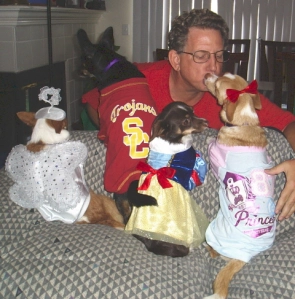
Photos By: Marion Algier – The UCLA Shutterbug
There is always room for Just One More Pet. So if you have room in your home and room in your heart… Adopt Just One More! If you live in an area that promotes unreasonable limitations on pets… fight the good fight and help change the rules and legislation…
Save the Life of Just One More…Animal!

Recent and Seasonal Shots
As I have been fighting Cancer… A battle I am gratefully winning, my furkids have not left my side. They have been a large part of my recovery!! Ask Marion
Photos by the UCLA Shutterbug are protected by copyright, Please email at JustOneMorePet@gmail.com or find us on twitter @JustOneMorePet for permission to duplicate for commerical purposes or to purchase photos.
See Creative Pet Halloween Costumes
If you can adopt or foster just one more pet, you could be saving a life, while adding joy to your own! Our shelters are over-flowing… Please join the fight to make them all ‘NO-Kill’ facilities.
Help Make a Difference

Protect Your Pet From Tarter and Gum Disease
Plaque Attack Triple Care Dental Spray Amazon.com Widgets- Adopt Just One More Pet All Animals All Pets animal abuse animal advocacy animal advocates animal cruelty animals ASPCA Bears be part of the solution Birds California cancer canines Cats cats and dogs Chihuahuas China Chiweenies Christmas cute dog Doggies dogs dogs and cats Dr. Becker elephants Fido fish for the love of a pet German Shepherd Halloween holidays holidays with pets horses HSUS Humane Society Humane Society of the United States JOMP Just One More Pet JustOneMorePet kittens kitties livestock Love man's best friend military dogs monkeys New York Pet Abuse Pet Adoption Pet costumes Pet Food pet fun Pet Health Pet Parents Pets pet safety pets and holidays Pets Are Family Pet Therapy Puppies puppy mills pups rabbits Rainbow Bridge reptiles responsible pet ownership responsible pet parents service dogs Stop Animal Cruelty Texas There Is Always Room For One More Pet we are their voice
 JustOneMorePet
JustOneMorePet- In Memory of Rocky – Until We Meet Again on Rainbow Bridge
- In Memory of Rocky – Until We Meet Again on Rainbow Bridge
- Panda Accused of Faking Pregnancy To Get Better Food, Air Conditioning
- Dachshund Family Photo | Picture Furrfect
- They Were Dead Puppy Parts Instead of Dead Baby
- Bob’s Full House
- Keep Your Pets Safe on the 4th of July
- JOMP Salutes Doggie Dads Both Two and Four Legged
- Smartest Dog In the World, Chaser – 60 Minutes With Anderson Cooper
- Quebec bill changes animals from "property" to sentient beings and includes jail time for cruelty
Find Pet Friendly Hotels
Recent Comments
JustOneMorePet
Tweets by JustOneMorePetFlickr Photos
Meta
Great Book for Children and Pet Lovers… And a Perfect Holiday Gift
One More PetEmily loves animals so much that she can’t resist bringing them home. When a local farmer feels under the weather, she is only too eager to “feed the lambs, milk the cows and brush the rams.” The farmer is so grateful for Emily’s help that he gives her a giant egg... Can you guess what happens after that? The rhythmic verse begs to be read aloud, and the lively pictures will delight children as they watch Emily’s collection of pets get bigger and bigger.
~~ 2000+ Dog Books And All Things Dog ~~
Dogwise, All Things Dog! Monthly Feature: BEHAVIOR PROBLEMS IN DOGSBuy Now: A Must Have For Every Pet Owner
-
Archives
- August 2015
- July 2015
- June 2015
- May 2015
- April 2015
- March 2015
- February 2015
- January 2015
- December 2014
- August 2014
- July 2014
- June 2014
- May 2014
- April 2014
- March 2014
- February 2014
- January 2014
- December 2013
- November 2013
- October 2013
- September 2013
- August 2013
- July 2013
- June 2013
- May 2013
- April 2013
- March 2013
- February 2013
- January 2013
- December 2012
- November 2012
- October 2012
- September 2012
- August 2012
- July 2012
- June 2012
- May 2012
- April 2012
- March 2012
- February 2012
- January 2012
- December 2011
- November 2011
- October 2011
- September 2011
- August 2011
- July 2011
- June 2011
- May 2011
- April 2011
- March 2011
- February 2011
- January 2011
- December 2010
- November 2010
- October 2010
- September 2010
- August 2010
- July 2010
- June 2010
- May 2010
- April 2010
- March 2010
- February 2010
- January 2010
- December 2009
- November 2009
- October 2009
- September 2009
- August 2009
- July 2009
- June 2009
- May 2009
- April 2009
- March 2009
- February 2009
- January 2009
- December 2008
- November 2008
- October 2008
- September 2008
- August 2008
If You Were Stranded On An Island…
A recent national survey revealed just how much Americans love their companion animals. When respondents were asked whether they’d like to spend life stranded on a deserted island with either their spouse or their pet, over 60% said they would prefer their dog or cat for companionship!








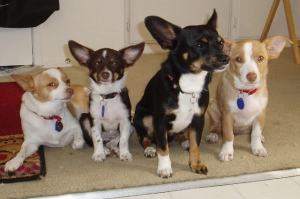

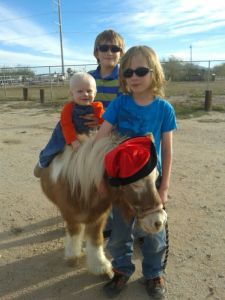
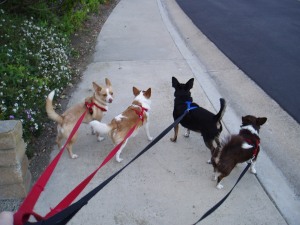
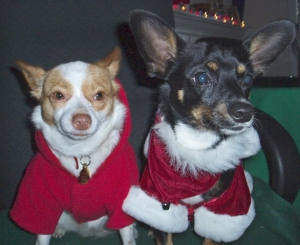
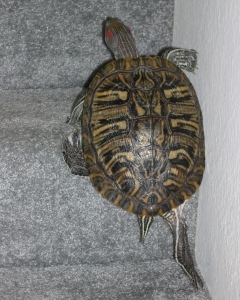
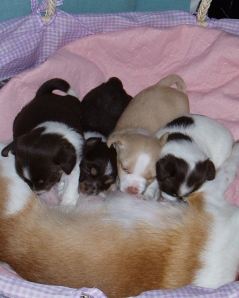
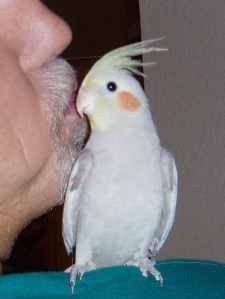
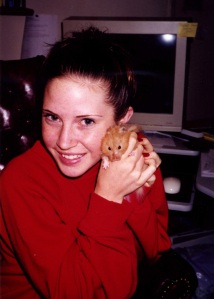
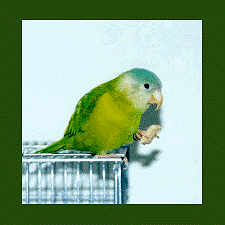
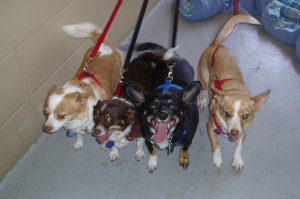
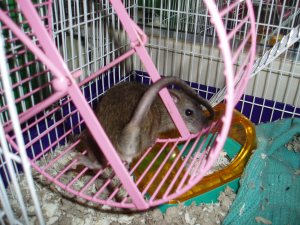
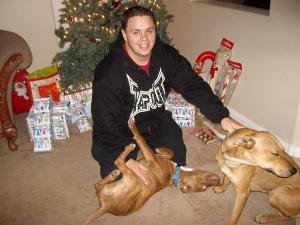
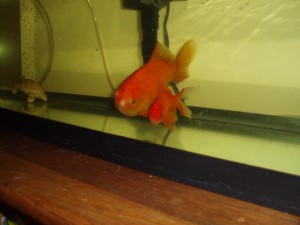
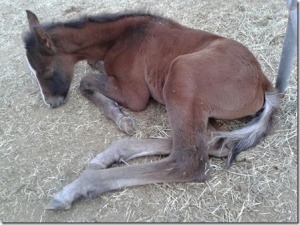
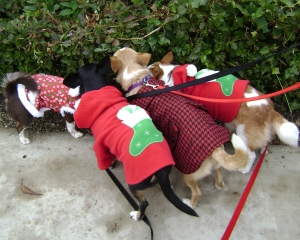
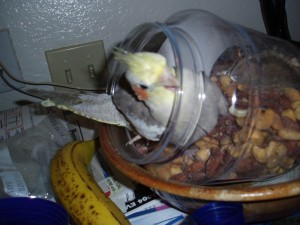

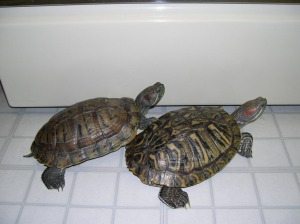

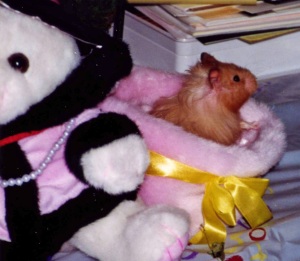

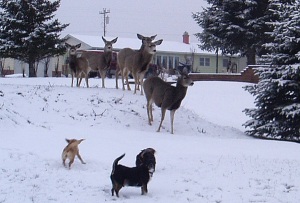
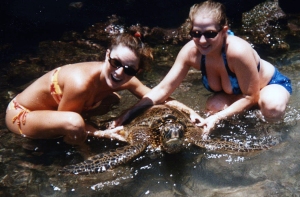
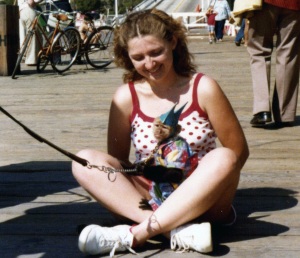
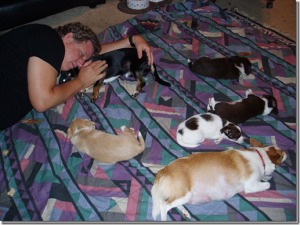
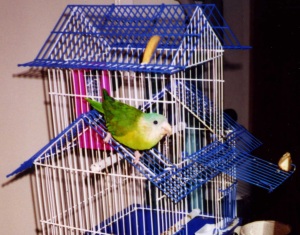
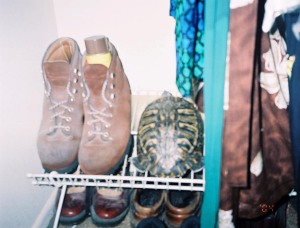
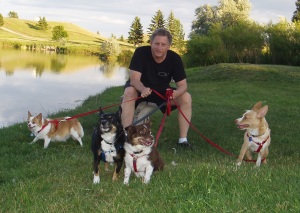
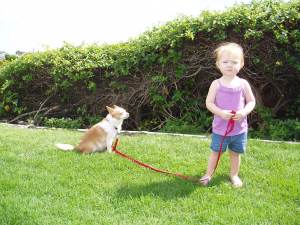
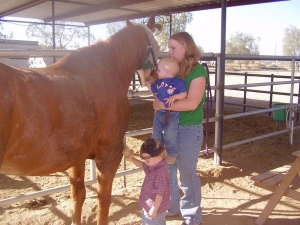
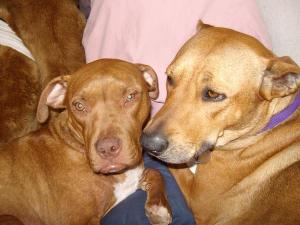

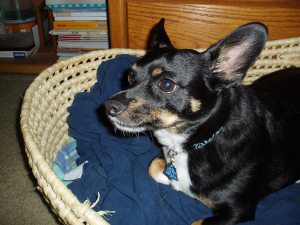
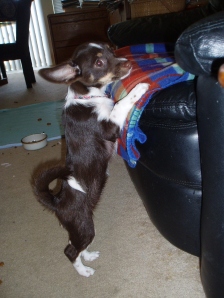


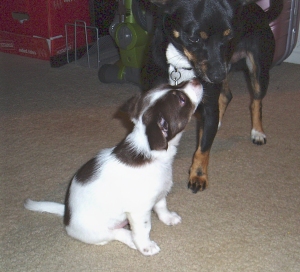

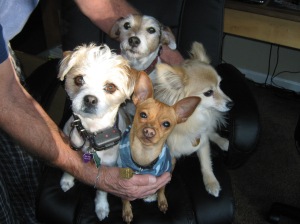
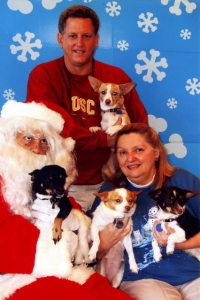






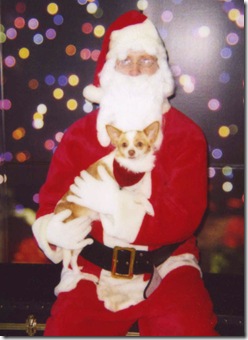



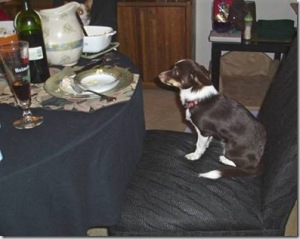
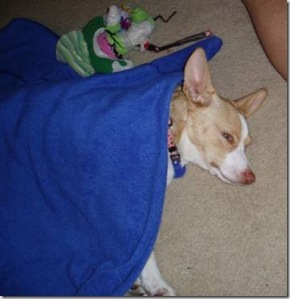
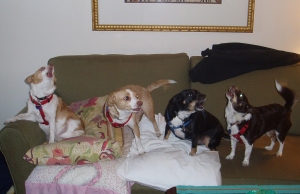

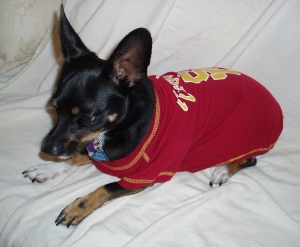
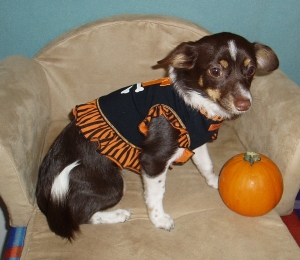
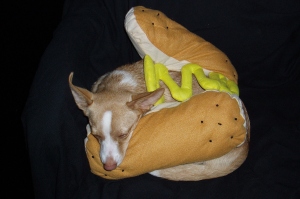
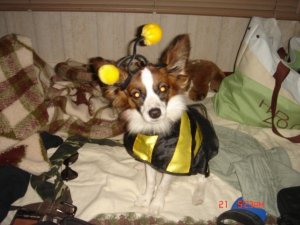

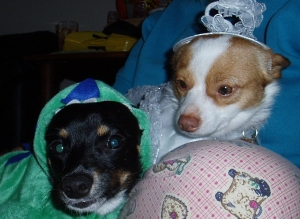
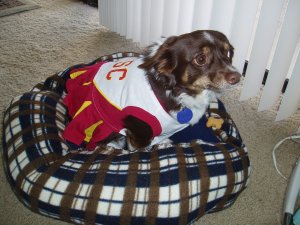

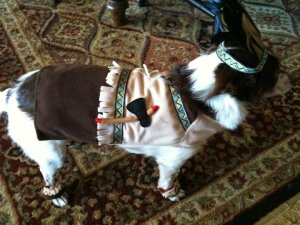

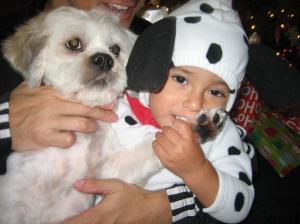
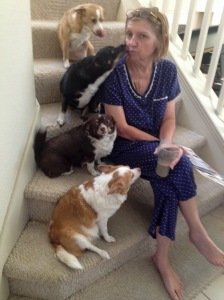



You must be logged in to post a comment.